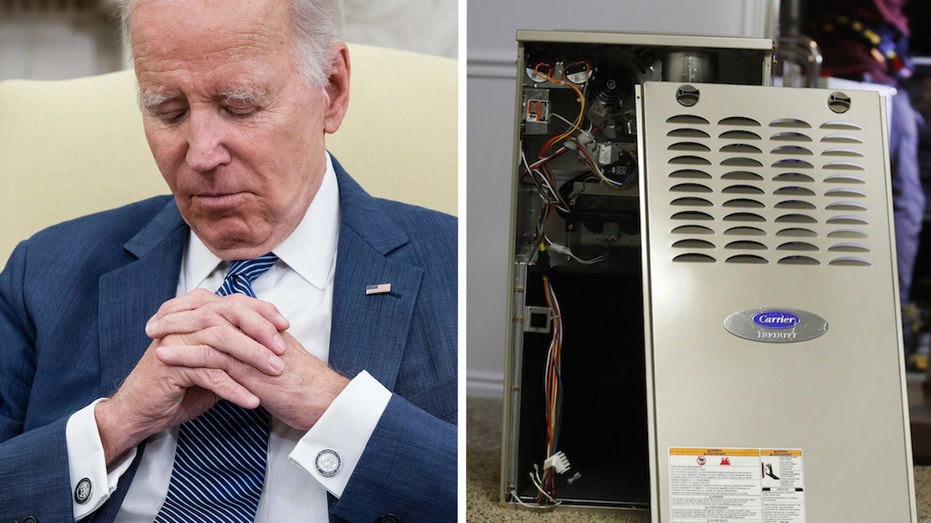The natural gas industry is challenging the Biden administration over its regulations targeting traditional gas-powered residential furnaces, which a rulemaking energy groups says will impact more than half of all U.S. households.
Led by the American Gas Association (AGA), whose members provide natural gas to more than 74 million customers nationwide, several trade associations and one manufacturer filed the legal challenge late Monday against the Department of Energy (DOE) over the regulations, which were finalized in late September. The groups argued the agency’s action effectively bans the sale of a large swath of furnaces enjoyed by consumers.
“AGA has attempted to work with the Department of Energy to address the rule’s profound impacts on consumers and homeowners with a solutions-oriented approach to energy conservation that protects consumers and ensures continued availability of low-cost, low-emission natural gas furnaces,” AGA President and CEO Karen Harbert said in a statement. “Unfortunately, our 114 pages of comments have been summarily ignored.”
“This ruling from DOE will push American families with natural gas heat into a corner — when their furnace goes out, they’ll be forced to choose between retrofitting for electric with the increased month-to-month utility bills that entails or engaging in a costly and time-consuming renovation to retrofit their home for a completely different type of natural gas furnace,” she continued.
BIDEN INVOKES WARTIME POWERS TO FUND ELECTRIC HEATERS AS HE CRACKS DOWN ON GAS APPLIANCES
Harbert added that as a result of the regulations, families and businesses will be “saddled with increased costs with little environmental gain.”
The DOE’s finalized regulations, which are slated to go into effect in 2028, specifically require furnaces to achieve an annual fuel utilization efficiency (AFUE) of 95%, meaning manufacturers would only be allowed to sell furnaces that convert at least 95% of fuel into heat within six years. The current market standard AFUE for a residential furnace is 80%.
EXPERTS WARN BIDEN ADMIN’S WATER HEATER CRACKDOWN WILL HIKE PRICES, REDUCE CONSUMER CHOICE
Because of the stringent AFUE requirements, the regulations would largely take non-condensing gas furnaces — which are generally less efficient, but cheaper — off the market. However, consumers who replace their non-condensing furnace with a condensing furnace after the rule is implemented face hefty installation costs.
Overall, AGA has estimated the DOE regulations would remove up to 60% of current residential furnaces off the market. Additionally, AGA said on Monday that the regulations impact 55% of American households and would lead to higher costs for 30% of senior households, 27% of small businesses and 26% of low-income households.
DOE Secretary Jennifer Granholm has defended the regulations, and a slew of other Biden administration actions targeting popular home appliances, by arguing they will lead to more efficient appliances, lower costs and reduced carbon emissions.
“At the direction of Congress, DOE is continuing to review and finalize energy standards for household appliances, such as residential furnaces, to lower costs for working families by reducing energy use and slashing harmful pollutants in homes across the nation,” she said after finalizing the furnace regulations on Sept. 29.
According to the DOE, altogether, its past and planned appliance regulations will save Americans $570 billion and reduce greenhouse gas emissions by more than 2.4 billion metric tons over the next 30 years.
























